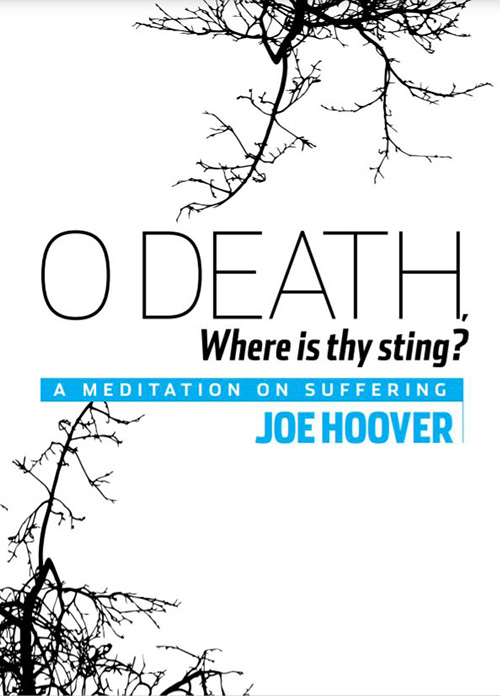
(Unsplash/Luis Galvez)

I've reread O Death, Where Is Thy Sting?: A Meditation on Suffering by Jesuit Br. Joe Hoover many times since its release in December. As the subtitle suggests, it is a collection of reflections on God's role in the suffering we experience as human beings. Hoover grapples with this question with a mix of wisdom, humor and just the right amount of sarcasm.
"Are we simply to wait? Wait to make sense of sadness, of evil? ... God is good?" he asks in the book's first chapter, "The Glory of God."
In one of the funniest and most moving moments in the book, Hoover tells the story of a priest who has a near-death experience. After he almost dies, the priest says he has a mission from God to heal his people. Such situations often quickly turn into superstitions, yet countless Catholics flock to Masses with similar feelings of finding hope and healing from their suffering. This scene, in particular, was one of the most moving moments in the book because Hoover is candid about it all. I have often had these thoughts about "healing Masses" and the promises of others for "healing retreats," but I never had the words to be so honest about them. Hoover does just that.
Throughout the book, he describes praying and protesting to end the Iraq War in the cold and how small these acts felt. How does holding up signs in the bitter cold and praying with some beads change anything? It changes nothing and everything at the same time.
In another chapter, Hoover asks, "Why is it this way?", describing original sin and the work we have to put in to become saints. He writes that this is the question a child asks, and it is one that I have asked many times.
I especially loved his story about Merry, who took in strangers and helped feed the poor. She taught Hoover the living Gospel, not because she preached or was religious but because she met people where they were without asking if they were worthy.
If you have ever doubted whether you believe or if you have ever felt overwhelmed by our faith, this is the book for you. O Death, Where Is Thy Sting? speaks to me because I have suffered and questioned my faith following my son's suicide in March 2017. It also speaks to the collective suffering we have experienced this year, from the violence of Jan. 6 to more than 500,000 Americans lost to the COVID-19 pandemic. Each time I felt a wave of this suffering and doubt, rereading this book grounded me in a way that nothing else has.
There is so much pain around us, yet at the same time, the book teaches, we find ourselves with so many opportunities to practice our faith in authentic, person-to-person ways. Amid so much pain, we get to figure out new ways to love our neighbors and be in community with one another.
Advertisement
Hoover gives us great examples of how even when we feel like our actions and prayers are pointless, like praying the rosary in the cold to protest a war, we are still somehow doing something. Even in these moments, God is working through us.
Hoover writes from a space of faith that is rarely discussed, written and even less seen in the real world. He is honest and unafraid to talk about the goodness of God and how it challenges us in our darkest moments of faith. We are often drowning in clichés that do not hold water when the suffering of life comes, and it does come, even if not to our own front door.
Hoover shows us all the ways that we are fools but also how God still loves us in these moments. He shows us that God is bigger than we will ever realize. At a time when so many people use God's name to justify good and bad things that happen all around, O Death, Where Is Thy Sting? reminds us that we cannot place God, or our faith, into a box. "God can never be bound by a single word," Hoover writes, a great lesson for us to read, especially this Lent.
I found so much goodness in this book, and I recommend it for the weary and the brokenhearted. For those who look around and know that God is, in fact, good, but also struggle to believe. For those who wonder whether there is a place in the church for you. For those who are struggling to pray. This book is for everyone who feels lost.
Working amid so much suffering to believe does not make me, or any of us, less faithful or less Catholic. If anything, reading O Death, Where Is Thy Sting?: A Meditation on Suffering made me realize that I am more of one than I thought.





